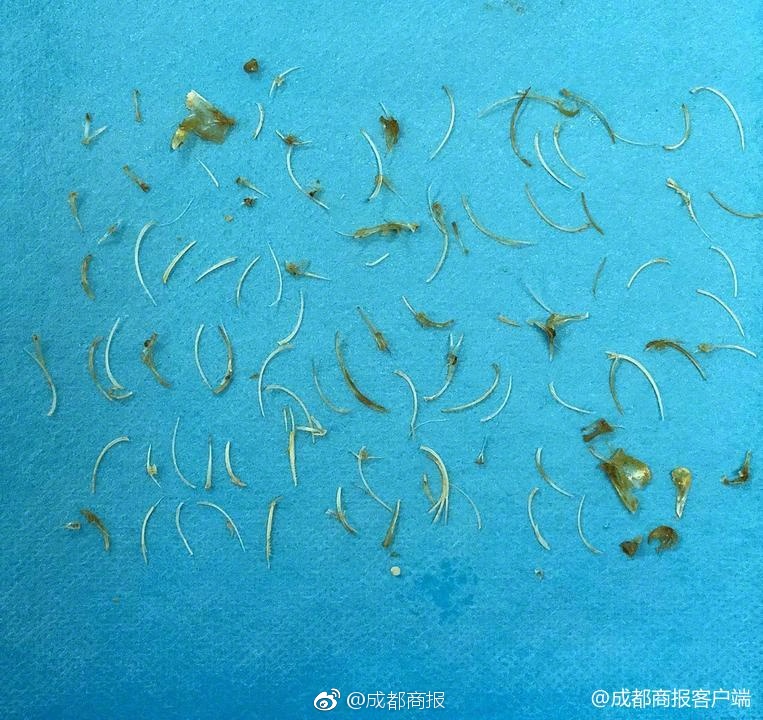
1. The five functions of the operating system are processor management, memory management, device management, file management and job management. Processor management The most basic function of processor management is to process interrupt events. After configuring the operating system, various events can be processed.
2. The main function of the computer operating system is process management, and its work is mainly process scheduling. In the case of a single user and a single taskNext, the processor is only monopolized by one user's task, and the process management work is very simple.
3. Operating System (abbreviation: OS) is a group of interrelated system software programs that supervise and control computer operation, use and run hardware, software resources and provide public services to organize user interaction.
4. Five major management functions of the operating system: (1) Job management: including tasks, interface management, human-computer interaction, graphical interface, voice control and virtual reality, etc. ( 2) File management: also known as information management. ( 3) Storage management: The essence is the management of storage "space", which mainly refers to the management of the main memory.
Any information system has five basic functions, namely: information collection and recording (input); information storage; information processing; information transmission; information output .
According to the functional introduction of the information system, the information system has five basic functions: input, storage, processing, output and control. Different functions have different functions, such as input function: the input function of the information system is determined by the purpose to be achieved by the system, the ability of the system and the permission of the information environment.
Five basic functions of the information system: input, storage, processing, output and control. Input function: The input function of the information system is determined by the purpose to be achieved by the system, the ability of the system and the permission of the information environment.Storage function: Storage function refers to the ability of the system to store various information and data. Mainly including: statistical functions.
The operating system has five functions: processor management: mainly controls and manages the work of the CPU. Storage management: mainly allocate and manage memory. Device management: mainly manage basic input and output devices. File management: responsible for the organization, storage, operation and protection of computer files.
The functions of the computer operating system include: processor management, memory management, device management, file management, job management and other functional modules. Processor management. The most basic function of processor management is to handle interrupt events. The processor can only detect interrupt events and generate interrupts and cannot process them.
The main function of the computer operating system is process management, and its main work is process scheduling. In the case of a single user and a single task, the processor is only monopolized by one user's task, and the work of process management is very simple.
The main functions of the operating system are process and processor management, job management, storage management, device management and file management, as follows: process and processor management. Because the execution of the program must rely on the processor, only one program flow can be processed and executed at any time. Homework management.
I) Processor management The most basic function of processor management is to handle interrupt events. The processor can only detect interrupt events and generate interrupts, and cannot handle these interrupt events. After configuring the operating system, all types of events can be handled.Another function of processor management is processor scheduling.
Five management functions of the operating system: job management: including tasks, interface management, human-computer interaction, graphical interface, voice control and virtual reality, etc. File management: also known as information management. Storage management: The essence is the management of storage "space", which mainly refers to the management of the main memory.

The storage management function of the operating system is to manage memory resources. It mainly realizes memory allocation and recovery, storage protection and memory expansion. The device management of the device management operating system is responsible for allocating and recycling external devices, and controlling external devices to operate according to the requirements of user programs.
The functions of the computer operating system include: processor management, memory management, device management, file management, job management and other functional modules. Processor management. The most basic function of processor management is to handle interrupt events. The processor can only detect interrupt events and generate interrupts and cannot process them.
The five functions of the operating system are processor management, memory management, device management, file management and job management.Processor management The most basic function of processor management is to process interrupt events. After configuring the operating system, various events can be processed.
European Cup live-APP, download it now, new users will receive a novice gift pack.
1. The five functions of the operating system are processor management, memory management, device management, file management and job management. Processor management The most basic function of processor management is to process interrupt events. After configuring the operating system, various events can be processed.
2. The main function of the computer operating system is process management, and its work is mainly process scheduling. In the case of a single user and a single taskNext, the processor is only monopolized by one user's task, and the process management work is very simple.
3. Operating System (abbreviation: OS) is a group of interrelated system software programs that supervise and control computer operation, use and run hardware, software resources and provide public services to organize user interaction.
4. Five major management functions of the operating system: (1) Job management: including tasks, interface management, human-computer interaction, graphical interface, voice control and virtual reality, etc. ( 2) File management: also known as information management. ( 3) Storage management: The essence is the management of storage "space", which mainly refers to the management of the main memory.
Any information system has five basic functions, namely: information collection and recording (input); information storage; information processing; information transmission; information output .
According to the functional introduction of the information system, the information system has five basic functions: input, storage, processing, output and control. Different functions have different functions, such as input function: the input function of the information system is determined by the purpose to be achieved by the system, the ability of the system and the permission of the information environment.
Five basic functions of the information system: input, storage, processing, output and control. Input function: The input function of the information system is determined by the purpose to be achieved by the system, the ability of the system and the permission of the information environment.Storage function: Storage function refers to the ability of the system to store various information and data. Mainly including: statistical functions.
The operating system has five functions: processor management: mainly controls and manages the work of the CPU. Storage management: mainly allocate and manage memory. Device management: mainly manage basic input and output devices. File management: responsible for the organization, storage, operation and protection of computer files.
The functions of the computer operating system include: processor management, memory management, device management, file management, job management and other functional modules. Processor management. The most basic function of processor management is to handle interrupt events. The processor can only detect interrupt events and generate interrupts and cannot process them.
The main function of the computer operating system is process management, and its main work is process scheduling. In the case of a single user and a single task, the processor is only monopolized by one user's task, and the work of process management is very simple.
The main functions of the operating system are process and processor management, job management, storage management, device management and file management, as follows: process and processor management. Because the execution of the program must rely on the processor, only one program flow can be processed and executed at any time. Homework management.
I) Processor management The most basic function of processor management is to handle interrupt events. The processor can only detect interrupt events and generate interrupts, and cannot handle these interrupt events. After configuring the operating system, all types of events can be handled.Another function of processor management is processor scheduling.
Five management functions of the operating system: job management: including tasks, interface management, human-computer interaction, graphical interface, voice control and virtual reality, etc. File management: also known as information management. Storage management: The essence is the management of storage "space", which mainly refers to the management of the main memory.

The storage management function of the operating system is to manage memory resources. It mainly realizes memory allocation and recovery, storage protection and memory expansion. The device management of the device management operating system is responsible for allocating and recycling external devices, and controlling external devices to operate according to the requirements of user programs.
The functions of the computer operating system include: processor management, memory management, device management, file management, job management and other functional modules. Processor management. The most basic function of processor management is to handle interrupt events. The processor can only detect interrupt events and generate interrupts and cannot process them.
The five functions of the operating system are processor management, memory management, device management, file management and job management.Processor management The most basic function of processor management is to process interrupt events. After configuring the operating system, various events can be processed.
Hearthstone Arena class tier list 2024
author: 2025-01-10 16:41Hearthstone arena deck Builder
author: 2025-01-10 18:14 Free sports events uefa champions league app android
Free sports events uefa champions league app android
815.22MB
Check UEFA European championship
UEFA European championship
432.82MB
Check App to watch Champions League live free
App to watch Champions League live free
732.17MB
Check Bingo Plus
Bingo Plus
827.55MB
Check UEFA Champions League live streaming app
UEFA Champions League live streaming app
848.51MB
Check Champions League
Champions League
534.63MB
Check Walletinvestor digi plus
Walletinvestor digi plus
688.18MB
Check Casino Plus GCash login
Casino Plus GCash login
335.88MB
Check Casino Plus
Casino Plus
927.24MB
Check TNT Sports
TNT Sports
538.47MB
Check DigiPlus stock
DigiPlus stock
853.32MB
Check UEFA Champions League live
UEFA Champions League live
298.33MB
Check UEFA TV
UEFA TV
827.15MB
Check Hearthstone arena class win rates reddit
Hearthstone arena class win rates reddit
674.98MB
Check UEFA Europa League
UEFA Europa League
634.68MB
Check DigiPlus fair value
DigiPlus fair value
525.55MB
Check UEFA Champions League live streaming free
UEFA Champions League live streaming free
266.51MB
Check UEFA TV
UEFA TV
631.47MB
Check bingo plus update today
bingo plus update today
958.62MB
Check Hearthstone Arena win rate
Hearthstone Arena win rate
491.78MB
Check Arena plus APK
Arena plus APK
768.95MB
Check DigiPlus
DigiPlus
284.99MB
Check UEFA live free
UEFA live free
692.28MB
Check European Cup live
European Cup live
344.36MB
Check DigiPlus stock
DigiPlus stock
892.99MB
Check Arena Plus login
Arena Plus login
813.28MB
Check UEFA Champions League standings
UEFA Champions League standings
639.85MB
Check Champions League
Champions League
611.76MB
Check Champions League
Champions League
825.74MB
Check Hearthstone Arena class tier list 2024
Hearthstone Arena class tier list 2024
867.79MB
Check PAGCOR online casino free 100
PAGCOR online casino free 100
416.26MB
Check Walletinvestor digi plus
Walletinvestor digi plus
663.38MB
Check Hearthstone Wild Decks
Hearthstone Wild Decks
376.72MB
Check App to watch Champions League live free
App to watch Champions League live free
436.96MB
Check Casino free 100 no deposit
Casino free 100 no deposit
243.43MB
Check Europa League app
Europa League app
918.48MB
Check
Scan to install
European Cup live to discover more
Netizen comments More
1985 Hearthstone Wild Decks
2025-01-10 17:24 recommend
2066 DigiPlus stock
2025-01-10 17:19 recommend
1141 UEFA Europa League
2025-01-10 16:47 recommend
1715 UEFA Champions League standings
2025-01-10 16:43 recommend
1713 100 free bonus casino no deposit GCash
2025-01-10 16:09 recommend